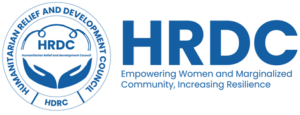Food security is one of the greatest challenges facing Somalia, as the fragile peace situation exacerbates the loss of productive assets. HRDC empowers and builds community resilience by enabling food security through developing sustainable approaches to improving agricultural livelihoods. HRDC works to transfer technology and build capacity community-based groups and among youth.
Additional interventions include providing productive agricultural assets and strengthening community safety nets. Community safety nets include cash transfers, FFA, CFA, distribution of seeds, and tools to help establish agricultural and other income-generating activities (IGAs). Community/village savings and loans (VLSA) programs have grown from these activities and the IGAs develop local products that help promote better livelihoods. HRDC participates in liaison with external and internal markets to enable the community to access markets for their local products.
HRDC food security and livelihood projects, as well as dealing with issues regarding production, access, and income, help prevent and anticipate future outbreaks of malnutrition. Projects designed to promote agricultural production and activity of local markets, support micro-enterprise initiatives, etc. In short, their goal is to improve a vulnerable community’s access to sustainable sources of food and income.
The causes of food insecurity depend on a range of factors – national and international policies that affect agricultural development or trade; food price fluctuations; pandemics like malaria or TB; armed conflict; and natural disasters and man-made disasters.
Our projects aim to promote food autonomy among the most vulnerable population groups, thus guaranteeing their food security in the short, medium, and long term.

